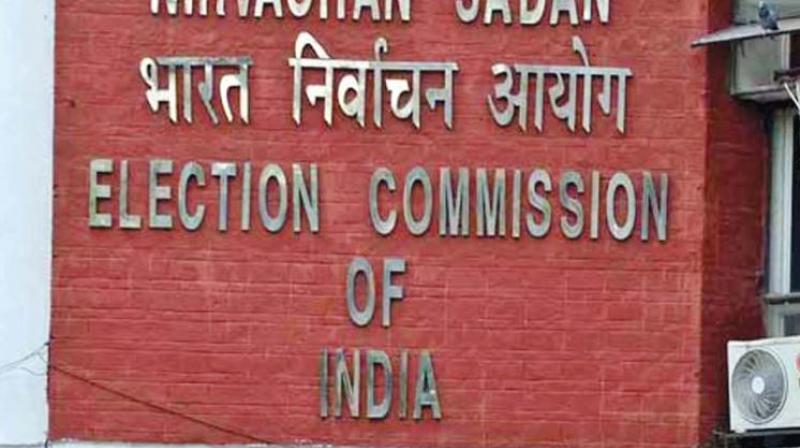Karnataka: Centre may not put off elections, say experts
And the Centre could impose President's rule and conduct the elections perhaps with Rajasthan and Madhya Pradesh.

Bengaluru: The legal fraternity said the issue of postponement of assembly elections in Karnataka was highly unlikely. While former additional solicitor general, K.N. Bhat felt it was possible, senior counsel of Supreme Court, Mohan Katarki said it was almost impossible to postpone the elections under the present circumstances while a senior bureaucrat working in the state government felt that going by the preparations for holding the elections, the Centre would not take such a decision now.
Mr Bhat was of the view that if, for instance, the Election Commission of India(ECI) failed to announce the calendar of events before the end of April and the term of the fourteenth assembly expired in the last week of May, then the governor could suo motu take cognisance of the situation. Citing breakdown of constitutional machinery owing to ECI not conducting elections even after the expiry of the five-year term, the governor could recommend President’s rule.
And the Centre could impose President’s rule and conduct the elections perhaps with Rajasthan and Madhya Pradesh. "However, there is an issue of someone moving the court. Can the Central government take such a controversial political decision at this juncture?," he asked.
Referring to the two previous incidents of postponement of assembly elections in other states, Mr Bhat said, in 1995 when T.N. Seshan was the chief election commissioner, the ECI refused to hold elections in Bihar stating that the state government headed by Lalu Yadav had not completed the process of issuing EPIC cards. However, the Apex Court overruled the ECI’s decision.
The other case is with respect to Gujarat polls in 2003, when the then chief minister of Gujarat Narendra Modi dissolved the assembly six months before the expiry of the assembly’s five-year term. When the ECI moved to hold elections, civil society representatives petitioned the President asking him to postpone the elections claiming voters had not returned to their villages and towns after the riots. The President referred the matter to the Supreme Court which finally said the ECI had the responsibility of holding free and fair elections. “But, the term free and fair has not been defined by the Court,” he said.
Mr Katarki said it was almost impossible to postpone the elections in Karnataka because there was no emergency situation. “If we presume for argument’s sake that the ECI fails to announce the calendar of events, then the aggrieved party may approach the court,” he said.
Mr B.V. Acharya, noted lawyer said article 172 of the Constitution deals with this. “Once the term of the assembly is over, it will naturally get dissolved. Then if there is an emergency, then the proclamation of emergency can be done,” he said. However, a senior bureaucrat who is well versed with these issues, felt that the Centre would not write a letter to the state government saying it would like to postpone the elections.
“It is a bogus claim. In this case, the ECI came here and had held discussions with the state government to discuss law and order and other issues. After satisfying themselves with the ground realities, they moved to make preparations. They held meetings with political parties, announced the electoral rolls and moved EVMs to the state. These would suggest that there may not be a postponement of elections,” he said.

